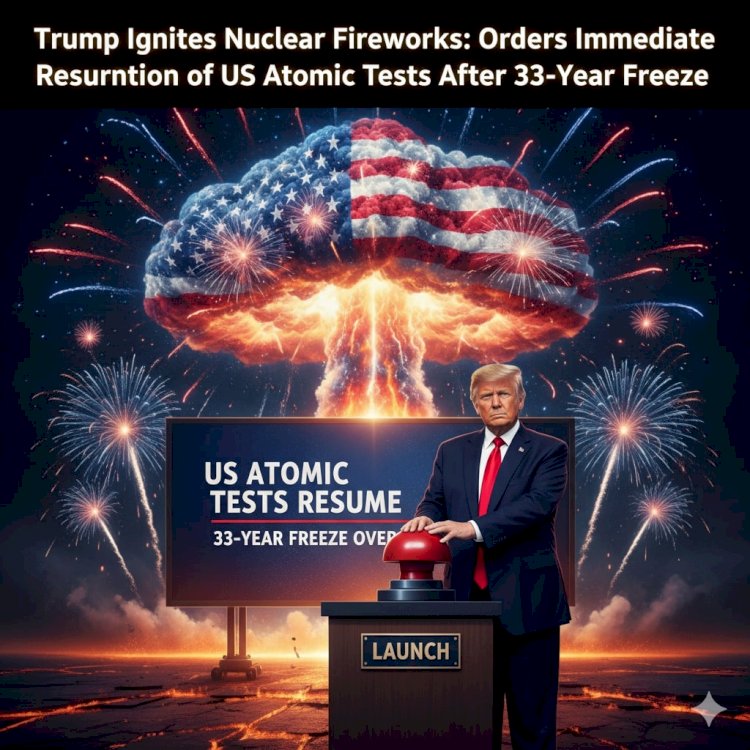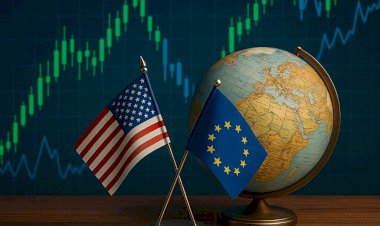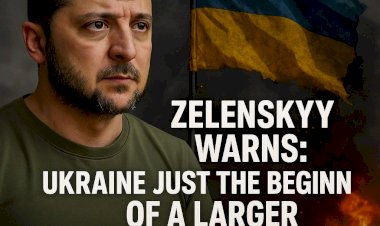Trump Ignites Nuclear Fireworks: Orders Immediate Resumption of US Atomic Tests After 33-Year Freeze

In a bombshell announcement that's rattling global nerves and echoing the echoes of the Cold War, President Donald Trump has directed the Pentagon – now rebranded as the Department of War – to kickstart nuclear weapons testing "immediately" and "on an equal basis" with rivals Russia and China. The order, dropped like a tactical nuke on his Truth Social platform just hours before a high-wire summit with Chinese President Xi Jinping, marks the first U.S. green light for explosive nuclear tests since 1992, shattering a decades-long moratorium that symbolized post-Cold War restraint.
Trump, wrapping up a whirlwind Asia tour amid trade deal fanfare, framed the move as a no-nonsense response to adversaries flexing their atomic muscles. "The United States has more Nuclear Weapons than any other country," he boasted in the post, crediting his first term for a "complete update and renovation" of the arsenal. But with Russia second in stockpiles and China – now boasting over 600 warheads, up from 300 in 2020 – poised to close the gap "within 5 years," Trump declared: "Because of other countries' testing programs, I have instructed the Department of War to start testing our Nuclear Weapons on an equal basis." Speaking to reporters aboard Air Force One en route home from Busan, he doubled down: "They seem to all be nuclear testing. We have more than anybody. It's appropriate that we do also."
The timing couldn't be more charged. The directive landed like a flashbang in the midst of Trump's APEC summit schmoozing, fresh off a tariff-trimming trade pact with Xi that eased fentanyl flows and rare earth tensions. Yet as the leaders exchanged handshakes under the neon glow of Gimhae International Airport, whispers of nuclear brinkmanship overshadowed the economic olive branches. When pressed on the order during their bilateral greeting, Trump quipped, "Thank you very much everybody," before pivoting to praise the "amazing meeting" on trade.
From Moratorium to Mushroom Clouds: The Road to Restart
The U.S. slammed the brakes on full-scale nuclear testing three decades ago, opting for computer simulations and subcritical experiments to certify its roughly 5,177 warheads. That voluntary freeze, codified in a 1996 treaty signed but never ratified, was meant to curb proliferation and ease arms race jitters. But recent satellite snaps reveal all three superpowers – the U.S., Russia, and China – sprucing up test sites: new tunnels in Nevada's Yucca Flats, Russia's Novaya Zemlya, and China's Lop Nur.
Trump's fuse was lit by Moscow's midweek splash: a successful trial of the nuclear-powered Poseidon super-torpedo, a doomsday drone capable of tsunami-sized tsunamis. (The Kremlin insists no warhead detonated – just the delivery system.) Beijing's arsenal doubling in five years, per think tanks, adds fuel, as does the looming January 2026 sunset of the New START treaty, which caps U.S. and Russian deployed strategic weapons at 1,550 each. With no extension possible, hawks in Washington have been pounding the table for parity.
"It's a proclamation of U.S. military force," one anonymous State Department official muttered off-record, likening it to Trump's first-term flair for "fire and fury." The Nevada Test Site – dormant since the 1992 Divider shot – stands ready, though experts peg the timeline at 24 to 36 months for a contained underground blast. No details on yield, target date, or yield – Trump demurred: "It'll be announced. We have test sites."
Fallout: Allies Aghast, Adversaries Unfazed
The blast radius of backlash is already spreading. Rep. Dina Titus (D-NV), whose district hugs the test site, fired off on X: "I'll be introducing legislation to put a stop to this madness." Daryl Kimball of the Arms Control Association slammed it as "misinformed and out of touch," warning: "The U.S. has no technical, military, or political reason to resume nuclear explosive testing." Hans Kristensen of the Federation of American Scientists fretted it could spark a chain reaction: "Unlike the United States, Russia, China, India, and Pakistan would have much to gain by restarting."
On Capitol Hill, bipartisan brows furrowed. Senate Armed Services Chair Jack Reed (D-RI) called for hearings, while GOP firebrand Sen. Tom Cotton nodded approval: "Time to modernize and match." Internationally, the UN's nuclear watchdog in Vienna issued a terse plea for "dialogue over detonation," and EU foreign policy chief Josep Borrell decried a "dangerous step backward."
Moscow and Beijing? Stone-faced. Kremlin spokesman Dmitry Peskov shrugged: "We note the U.S. position but continue our defensive programs." China's Foreign Ministry, post-summit, emphasized "strategic stability" without naming names. North Korea, ever the wildcard, hailed it as "proof of Yankee hypocrisy" via state media.
Even Trump's own picks raise eyebrows. Brandon Williams, his appointee heading the National Nuclear Security Administration, told Congress in April he'd advise against resuming tests. Now, with the order inked, the bureaucracy hums: The Department of War (Congress still calls it Defense) must scramble for funds, likely raiding the $50 billion annual nuclear upkeep pot.
Echoes of History: From Trinity to Trump
This isn't uncharted territory – it's a sequel. The U.S. detonated over 1,000 nukes from 1945's Trinity blast to '92's underground finale, scarring Pacific atolls and desert basins. Trump's move revives ghosts of fallout fears, from downwinders' cancers to global test-ban talks that fizzled in the '90s. Proponents argue simulations can't fully vet next-gen warheads like the W87-1 for the Sentinel ICBM; detractors say it's escalatory theater in a world where non-explosive tests suffice.
As Air Force One slices the Pacific, markets dipped – defense stocks like Lockheed Martin ticked up 2%, while renewables wobbled on proliferation jitters. Environmental groups mobilized for Nevada protests, chanting "No Nukes 2.0." Trump, unfazed, touted it as "peace through strength": "I HATED to do it, but had no choice!"
In the shadow of silos and summits, one truth detonates: Trump's atomic encore isn't just policy – it's politics, a mushroom cloud over multipolar mayhem. Will it deter or detonate? The countdown's on, and the world's Geiger counter is ticking.

 content-team
content-team 


















